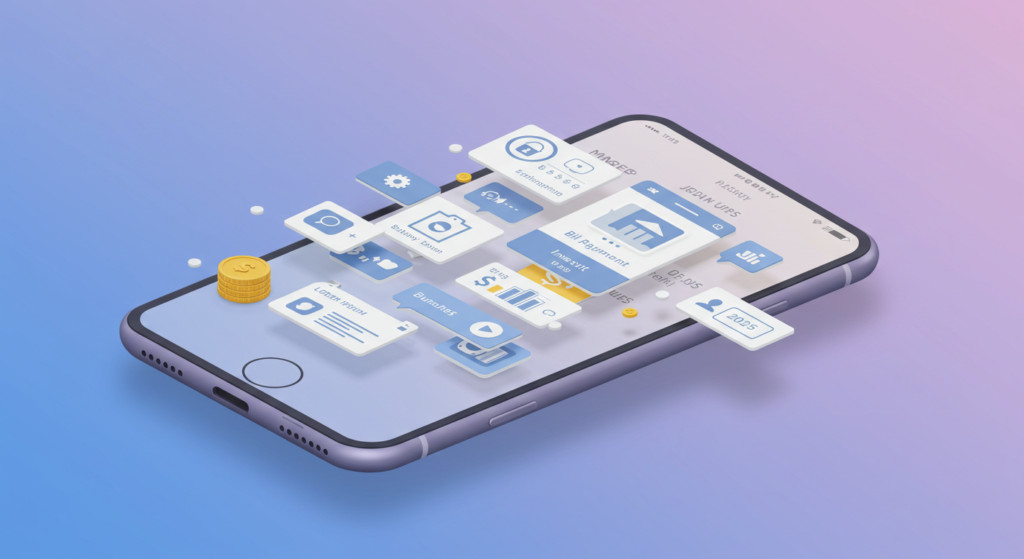Best Financial Apps to Manage Your Money in 2025

Managing your money has never been easier, thanks to the advancements in technology and the plethora of financial apps available. In 2025, these apps offer everything from budgeting and saving to investing and debt management. Here’s a list of the best financial apps to help you take control of your finances and achieve your financial goals.
1. Mint
Best for: Budgeting and Expense Tracking
Key Features:
- Automatically syncs with your bank accounts and credit cards.
- Tracks spending by category.
- Sends bill payment reminders and financial insights.
Mint remains one of the most popular financial apps, offering a comprehensive view of your financial health for free. It’s ideal for anyone who wants to create a budget and monitor expenses.
2. YNAB (You Need A Budget)
Best for: Detailed Budgeting and Debt Payoff
Key Features:
- Encourages proactive budgeting with every dollar assigned a job.
- Syncs with accounts and offers real-time tracking.
- Provides detailed reports and insights.
YNAB is perfect for those looking to break the paycheck-to-paycheck cycle and pay off debt faster. While it requires a subscription, its value often outweighs the cost.
3. Personal Capital
Best for: Investment Tracking and Retirement Planning
Key Features:
- Tracks net worth, investments, and cash flow.
- Provides retirement planning tools.
- Offers free financial dashboard access and wealth management services.
Personal Capital is an excellent choice for those with a focus on wealth building and long-term financial planning.
4. Acorns
Best for: Beginner Investing and Saving
Key Features:
- Rounds up purchases to the nearest dollar and invests the difference.
- Offers automatic recurring investments.
- Provides access to retirement accounts.
Acorns makes investing simple and accessible for beginners, turning spare change into a growing portfolio.
5. Robinhood
Best for: Commission-Free Stock Trading
Key Features:
- Allows commission-free trading of stocks, ETFs, options, and cryptocurrencies.
- Offers fractional shares.
- Provides real-time market data and insights.
Robinhood is ideal for those looking to invest in the stock market with a user-friendly interface and no trading fees.
6. PocketGuard
Best for: Simplified Expense Management
Key Features:
- Calculates how much “pocket” money you have after bills and savings.
- Tracks recurring expenses and subscriptions.
- Provides financial goal-setting tools.
PocketGuard helps you avoid overspending by showing exactly how much disposable income you have.
7. Debt Payoff Planner
Best for: Paying Off Debt Strategically
Key Features:
- Calculates debt-free dates based on your payments.
- Suggests debt payoff strategies like the snowball or avalanche method.
- Tracks progress with visual charts.
This app is ideal for anyone focused on eliminating debt and staying motivated.
8. Honeydue
Best for: Couples’ Budgeting
Key Features:
- Syncs accounts for shared budgeting.
- Tracks joint and individual expenses.
- Sends bill reminders to avoid missed payments.
Honeydue helps couples manage finances together by providing transparency and collaboration tools.
9. Goodbudget
Best for: Envelope Budgeting
Key Features:
- Digital version of the traditional envelope budgeting system.
- Allocates funds for specific spending categories.
- Syncs budgets across devices for family use.
Goodbudget is perfect for those who prefer the simplicity of envelope budgeting.
10. Chime
Best for: Banking and Savings Automation
Key Features:
- Offers fee-free banking with early direct deposit.
- Automatically saves a portion of income or rounds up purchases.
- Provides no-fee overdraft protection.
Chime combines banking and savings features in a user-friendly app designed for seamless money management.
How to Choose the Right Financial App
- Define Your Goals: Determine whether you need help with budgeting, saving, investing, or debt management.
- Compare Features: Look for apps that align with your financial needs and offer tools you’ll actually use.
- Check Security: Ensure the app uses encryption and adheres to financial data protection standards.
- Consider Costs: While some apps are free, others require subscriptions. Choose an app that fits your budget and provides value.
Benefits of Using Financial Apps
- Time-Saving: Automates tasks like tracking expenses and paying bills.
- Financial Clarity: Offers insights into spending and saving habits.
- Goal Achievement: Helps set and stick to financial goals.
- Ease of Use: Most apps are user-friendly and accessible on mobile devices.
Final Thoughts
In 2025, managing your money is easier and more efficient with the right financial apps. Whether you’re looking to budget better, save more, invest wisely, or pay off debt, these apps provide the tools and insights needed to succeed. Start exploring your options today and take control of your financial future.
FAQs
1. Are financial apps safe to use?
Yes, most financial apps use encryption and other security measures to protect your data. Always verify the app’s security features.
2. Do I need to pay for financial apps?
Many apps offer free versions, while others have subscription fees for advanced features.
3. Can financial apps replace a financial advisor?
While apps are helpful, they may not replace personalized advice from a financial professional.
4. Which app is best for beginners?
Mint and Acorns are great starting points for budgeting and investing, respectively.
Leave a Reply